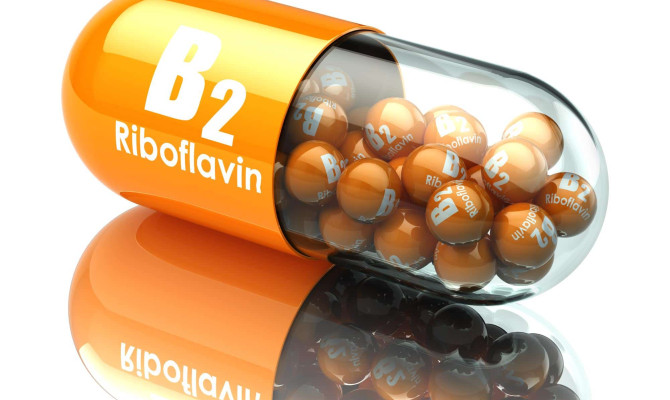Sodium: Uses, Sources and Side effects

- Sodium
- 01 Sep 2023
Introduction
Introduction
Sodium plays a crucial role in our life, from seasoning food to supplying energy to our cells. This element has a history entwined with culture, chemistry, and health. This article explores sodium’s fantastic history of discovery, characteristics, and vital roles inside and outside our bodies. More than merely a reactive metal is represented by it. It is a fundamental building block that powers vital biological processes, advances technology, and even improves the flavors of our favorite meals. During this investigation, we will learn the importance of salt in sustaining our health and advancing science and business.

Benefits

Sodium Health benefits
- Fluid balance regulation
- Nerve impulse transmission
- Muscle contraction
- Acid-base balance
- Nutrient transport
- Blood pressure regulation
- Hydration and electrolyte balance
- Cell Function
- Nervous system health
Here is a detailed exploration of the health benefits:
Fluid balance regulation
- Maintaining adequate fluid balance within our cells and tissues depends critically on sodium.
- It controls osmotic pressure with potassium to maintain uniform water distribution between cells and the surrounding fluids.
- This equilibrium is essential for preserving normal blood pressure and avoiding dehydration.
Transmission of nerve impulses
- It is necessary for producing and sending nerve impulses, enabling efficient communication between nerve cells.
- Basic activities like muscle contractions, reflexes, and even cognitive processes depend on this.
- Electrical signals are triggered as sodium ions enter and exit nerve cells, enabling various biological processes.
Muscle contraction
- Muscle contractions are caused by the release of calcium ions, which are triggered by the entry of sodium ions into muscle cells.
- Simple movements to the pounding of our hearts depend on this process to function.
Acid-base balance
- The body’s acid-base balance (Ph level) is maintained by sodium.
- It assists other electrolytes, such as bicarbonate, balance the body’s pH, preventing it from becoming excessively acidic or alkaline.
- To keep cellular processes operating normally, this equilibrium is essential.
Nutrient transport
- It assists in moving different nutrients through cell membranes.
- This is crucial for the small intestine because their sodium-dependent transport systems make it easier for nutrients like glucose and amino acids to enter the bloodstream from the digestive tract.
Blood pressure control
- While some people’s excessive sodium intake can contribute to high blood pressure, maintaining normal blood pressure requires the proper balance of salt intake.
- Sodium plays a role in blood volume regulation, impacting blood pressure levels.
Balance of electrolytes and hydration
- It cooperates with other electrolytes like potassium and chloride to keep correct hydration levels.
- Especially when exercising or when it is hot outside, electrolytes assist cells in retaining water, preventing dehydration.
Cell function
- It is essential for cellular health, supporting several biochemical procedures such as protein synthesis, glucose transport, and enzyme functioning.
- It guarantees that cells can do their tasks effectively, enhancing general health.
A healthy nervous system
- The neurological system must function. It aids in transmitting signals between nerve cells necessary for cognitive, motor, and sensory activities.
Although there is no denying that sodium has health benefits, it is crucial to remember that consuming too much sodium, frequently through highly processed foods, can result in hypertension and cardiovascular illnesses. Thus, a balanced salt intake is essential to reap its health benefits while reducing associated hazards. 1Health Benefits | Researched based study from Science Direct 2Health Benefits | Researched based study from National Library of Medicine
Sources
Sources of Sodium
Let’s certainly examine the numerous sodium sources in greater detail:
Organic resources
- Seafood naturally contains sodium, such as fish and shellfish.
- Even if the salt concentration fluctuates, it adds to the total amount of sodium consumed.
Dairy goods
- Milk, cheese, and yogurt are dairy products that naturally contain sodium.
- This results from sodium’s inclusion in animal diets and its role in preserving cellular processes.
Table salts
- One of the primary sources of dietary sodium is table salt, commonly known as sodium chloride (NaCl).
- At the table and while cooking, it is used to season food.
Processed foods
- Processed foods like chips, pretzels, and crackers frequently have salt added for flavor enhancement and shelf stability.
- Because salt is added to canned vegetables, soups, and sauces for preservation and flavor, they may include sodium.
Fast food and eating spots
- Salt is frequently added to fast food and restaurant items to improve flavor, which can considerably increase daily sodium intake.
Processed meats
- The salt content of deli meats, bacon, sausages, and canned meats is often high to prolong shelf life and improve flavor.
Frozen food
- Pre-packaged frozen meals and pizzas frequently have higher sodium content for taste and preservation.
Mineral water
- There is sodium present naturally in some mineral waters. The salt concentration can, however, change significantly across various products.
Sauces and Seasonings
Sauces
- Salad dressings, ketchup, soy sauce, and barbecue sauce are a few examples of sauces that can add flavor to food while also being high in sodium.
Condiments
- Due to their techniques of preservation, condiments, including pickles, olives, and some relishes, are sodium-rich foods.
Baked goods
Bread
- Salt is often added to commercially made bread and rolls for flavor and preservation.
Pastries
- For flavor, salt may be added to some pastries and baked items.
Supplements and Medications
Medications
- Salt is an ingredient in certain over-the-counter and prescription medications.
Supplement with electrolytes
- To help keep the electrolyte balance, sodium may be included in electrolyte tablets and supplements. 2Sources | Researched based study from National Library of Medicine 3Sources | Researched based study from National Library of Medicine
Dietary Requirements
Dietary Requirements
Age-related differences in sodium requirements reflect how people’s nutritional needs change as they mature. Following is a breakdown of suggested daily sodium intake levels by age: 2Dietary Requirements | Researched based study from National Library of Medicine
- Infants (0-6 months): Adequate intake: 120 mg/day
- Infants (7-12 months): 370 mg/day
Infants obtain sodium from breast milk or formula.
- Children (1-3 years): 1000 mg/day
- Children (4-8 years): 1200 mg/day
- Children and adolescents (9-13 years): 1500 mg/day
- Adolescents (14-18 years): 1500 mg/day
- Adults (19-50 years): 1500 mg/day
- Adults (51-70 years): 1300 mg/day
- Adults (71 years and older): 1200 mg/day
Side effects
Side effects
Here are some possible adverse effects of consuming a lot of sodium:
High blood pressure
- Consuming too much sodium can raise blood pressure, which increases the risk of cardiovascular conditions like heart attack and stroke.
(Swelling) Edema
- Swelling in the extremities and other body areas might result from too much salt, which can cause water retention.
Fluid imbalance
- Dehydration or over hydration may result from an electrolyte imbalance and other factors.
Difficulties with kidney function
- High sodium consumption can stress the kidneys, resulting in decreased kidney function and a higher risk of kidney stones.
Osteoporosis risk
- The body may expel more calcium through the urine due to too much sodium, weakening bones and increasing the danger.
Uneasy stomach
- High sodium levels may be a factor in digestive problems, bloating, and stomach pain.
Stroke risk
- Overconsumption can raise blood pressure, which increases the risk of stroke.
Impaired vascular performance
- High intakes may impact blood vessel health and function, possibly causing arterial stiffness.
Hypernatremia
- Excessive sodium in the blood is known as a sodium overdose.
- This can have adverse effects on the body’s electrolyte balance.
Dehydration
- As the body works to balance sodium concentration in the blood, elevated sodium levels can result in dehydration.
- Symptoms like intense thirst and dry mouth may result from this.
Neurological symptoms
- The nervous system can be impacted by a sodium imbalance, which can cause symptoms like disorientation, irritation, restlessness, and even seizures.
Palpitations in the heart
- High sodium levels may interfere with the heart’s electrical signals, possibly resulting in palpitations and irregular heartbeats.
Breathing difficulty
- In severe cases, it may cause breathing difficulties and respiratory distress.
Death and coma
- If left untreated, hyponatremia can occasionally result in coma or even death. 5Side effects | Researched based study from National Library of Medicine
Interactions
Interactions
Potassium interaction
- Sodium and potassium control fluid balance, nerve signals, and muscle contractions.
- For overall health, keeping these electrolytes in the proper balance is critical.
Medicine to lower blood pressure
- The effectiveness of blood pressure drugs may be impacted.
- It might negate the impact of these medications on the treatment of hypertension.
Diuretics
- It can cause sodium loss in the urine and is frequently recommended to control fluid retention and blood pressure.
- This impacts the total electrolyte balance and sodium levels.
Dehydration
- Dehydration and disruption of the sodium balance, which may result in an electrolyte imbalance, can be caused by insufficient fluid intake or excessive sweating.
Kidney function
- How the body responds to it is influenced by kidney function. The balance can be impacted by sodium retention or loss due to impaired renal function.
Adrenal gland hormones
- The hormones the glands produce, including aldosterone, affect the equilibrium of sodium and potassium.
- Elevated quantities of these hormones can affect electrolyte balance.
Gastrointestinal Health
- The sodium equilibrium can be impacted by gastrointestinal conditions influencing absorption or excretion.
- Vomiting and diarrheal diseases can cause salt loss.
Cardiac Health
- It impacts blood pressure and heart health via interacting with the cardiovascular system.
- It may aggravate heart-related problems like hypertension.
Sweating while exercising
- Sweating and vigorous exercise cause salt loss.
- Replacing lost sodium with a balanced diet or electrolyte-rich fluids is crucial for athletes and other active people.
Dietary elements
- Electrolyte balance can be upset by overeating salt while not getting enough potassium from food sources, which may result in health problems. 4Interactions | Researched based study from National Library of Medicine
Any feedback on this article?
 This Articles content was accurate
This Articles content was accurate Very Informative Article
Very Informative Article I have a question or a comment
I have a question or a comment
 This article contains inaccurate content
This article contains inaccurate content This article was not helpful
This article was not helpful I have a question or a comment
I have a question or a comment
We appreciate your helpful feedback!
Checkout our social pages
References
-
Science Direct
Health Benefits
-
National Library of Medicine
Health Benefits | Sources | Dietary Requirements
-
National Library of Medicine
Sources
-
National Library of Medicine
Interactions
-
National Library of Medicine
Side Effects




































